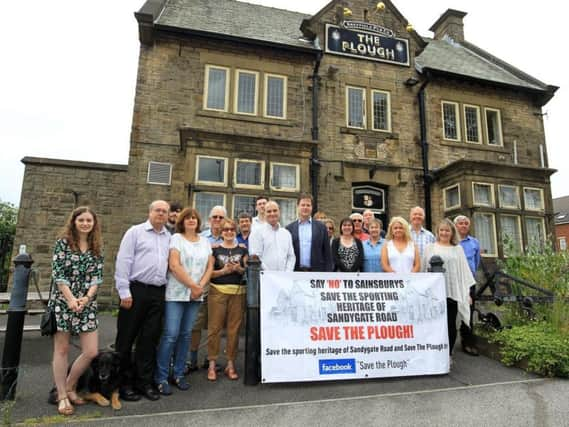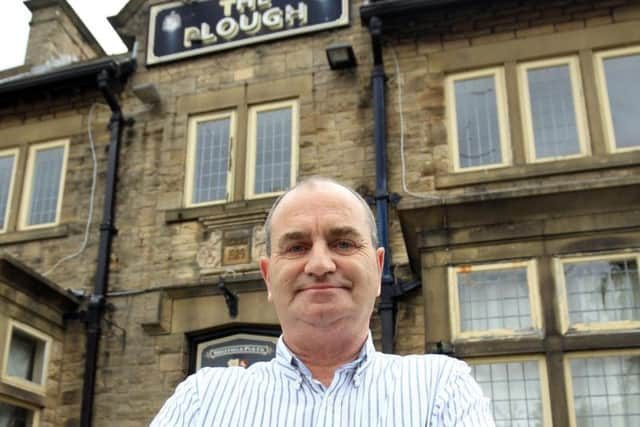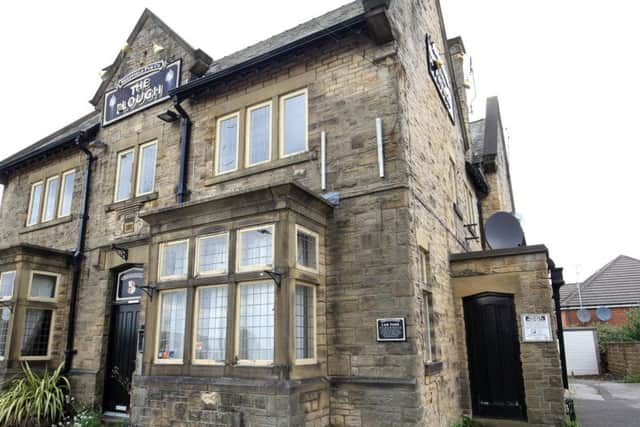Sheffield pub reputed to be the birthplace of modern football will NOT become a Sainsbury's


The Plough, at Sandygate, sits opposite Hallam FC, the world's oldest football ground, and is reputedly where the rules of football as we know it today were drafted over many pints during the 1870s.
The pub closed last April due to a lack of business, and owner Enterprise Inns had granted Sainsbury's a 15-year lease, subject to planning permission being granted.


Advertisement
Hide AdAdvertisement
Hide AdBut at a planning meeting on Tuesday, councillors unanimously rejected the retail giant's application to convert the building into a convenience store.
Councillor Peter Price, who is on the planning and highways committee which turned down the bid, said the pub had a rich sporting history.
"There's a growing recognition of the value pubs have to the local community... It's important we do our best to save pubs because so many have been lost across the city," he added.
The decision followed a campaign to preserve the pub led by locals, who had successfully applied to get the building listed as an 'asset of community value' (ACV).


Advertisement
Hide AdAdvertisement
Hide AdThis was one of the first serious tests in the city of ACV status, which means planning permission is needed to demolish or convert the premises and residents are given six months to prepare a bid should the owner wish to sell.
Anne-Marie Appleton, one of five speakers raising their objection to the plans at the meeting, said she hoped it would set a 'city-wide precedent' when it came to the protection from development of pubs which had been recognised as community assets.
But a council officer stated this was not the case since although ACV status would always be taken into account, planning applications must be considered on their individual merits.
Sainsbury's argued at the meeting that the building was no longer viable as a pub, with several landlords having failed to attract sufficient customers.


Advertisement
Hide AdAdvertisement
Hide AdOne local resident claimed a new convenience store was needed in the area, especially for older people who currently had to catch a bus to buy their groceries.
But objectors insisted there was no need for a new convenience store and said the pub had been 'mismanaged' in recent years and was in dire need of renovation, which might explain the lack of customers.
Local councillor Councillor Craig Gamble Pugh described The Plough as having played an 'important part in the history of football itself' and said he was convinced it could have an 'extremely strong future as a pub'.
His fellow Crookes and Crosspool ward councillor Adam Hanrahan urged the council to show it cared about protecting community pubs and would not 'give up on them just because a big business comes calling'.


Advertisement
Hide AdAdvertisement
Hide AdA Plough landlord founded Hallam Cricket Club, Yorkshire’s second oldest team, in 1804.
Members of the cricket club formed Hallam FC, the world's second oldest football team, in 1860.
The first ever football derby was played at Hallam's ground in 1860, after which players reportedly retired to The Plough for post-match refreshments.
And meetings in The Plough reportedly led to the development of the Sheffield Rules, which were later merged with the London Rules to form the first ever written rules of the modern game, as recognised by the Football Association.
Advertisement
Hide AdAdvertisement
Hide AdPeter Duff, chair of the Save The Plough group, said: "In recent years, Sheffield has marketed itself as a city of sport and the world's real ale capital. If there's one thing that brings sport and beer together it's The Plough."